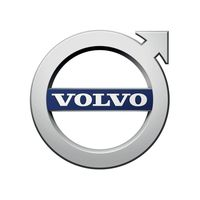Coor Service Management: Navigating Challenges and Seizing Opportunities
October 25, 2024, 3:53 pm

Location: Sweden, Solna kommun
Employees: 10001+
Founded date: 1853
Total raised: $533.3M
Coor Service Management Holding AB is at a crossroads. The latest interim report for January to September 2024 reveals a company grappling with stagnant growth and fluctuating profitability. Yet, amidst these challenges, there are glimmers of hope. The company is adapting, evolving, and positioning itself for future success.
In the third quarter of 2024, Coor reported net sales of SEK 2,943 million, a slight dip from SEK 3,016 million in the same period last year. Organic growth flatlined at 0 percent, while acquisitions contributed minimally. Currency exchange effects weighed down results, accounting for a negative 2 percent. The adjusted EBITA, a key profitability metric, fell to SEK 120 million from SEK 126 million, reflecting a tightening operating margin of 4.1 percent.
Profit after tax also took a hit, dropping to SEK 17 million from SEK 28 million. Earnings per share decreased from SEK 0.3 to SEK 0.2. Cash conversion, a measure of how efficiently a company turns its profits into cash, fell to 77 percent, down from 93 percent. This decline signals potential liquidity issues, as working capital increased by SEK 88 million due to accrued revenue.
The broader picture for the year shows net sales of SEK 9,247 million, slightly up from SEK 9,156 million. Yet, the lack of organic growth and the modest contribution from acquisitions—1 percent—raise questions about the company’s ability to drive sustainable growth. The operating margin remained stable at 4.8 percent, but the EBIT increased significantly from SEK 278 million to SEK 329 million, indicating some operational resilience.
Coor's leadership acknowledges the challenges. They note a decline in demand for variable volumes in Sweden and Denmark, prompting necessary adjustments to the cost base. An ongoing action program aims to streamline operations and enhance efficiency. This includes downsizing administrative resources and harmonizing processes. The company is also focused on improving profitability in its Swedish cleaning operations, which faced excessive resource utilization.
Despite these hurdles, Coor's management remains optimistic. They highlight a strong pipeline of new business opportunities. The company is actively extending important contracts and winning new ones, which could provide a much-needed boost. The market outlook appears promising, suggesting that Coor is not merely treading water but actively seeking to swim against the current.
In a strategic move to bolster its financial position, Coor's Board of Directors has authorized the acquisition of its own shares. This decision aims to secure commitments under the long-term incentive program established at the Annual General Meeting in April 2024. The plan is to acquire up to 400,000 shares on Nasdaq Stockholm between October 25 and November 25, 2024. This initiative could enhance shareholder value and signal confidence in the company's future.
Coor's commitment to creating the happiest and healthiest workplace environments in the Nordic region remains steadfast. The company serves a diverse clientele, including major corporations and public-sector organizations. Its expertise spans workplace services, property services, and strategic advisory services. This broad service offering positions Coor as a key player in the facility management sector.
However, the path forward is not without obstacles. The company must navigate a landscape marked by economic uncertainty and changing market dynamics. The declining demand for variable volumes is a warning sign. It suggests that Coor must innovate and adapt to maintain its competitive edge. The focus on cost management and operational efficiency is crucial.
As Coor moves into the fourth quarter, it will prioritize invoicing accrued revenues to restore its net working capital position. This tactical shift is essential for improving cash flow and ensuring financial stability. The company’s ability to execute this plan will be closely watched by investors and analysts alike.
In conclusion, Coor Service Management is a company in transition. It faces challenges that could easily sink a less resilient organization. Yet, Coor is not merely surviving; it is strategizing for growth. The combination of a strong pipeline of new business, ongoing operational improvements, and a commitment to shareholder value positions Coor for potential success. The next few quarters will be critical. The company must harness its strengths and address its weaknesses to navigate the turbulent waters ahead.
Coor's journey is a testament to the power of adaptability. In a world where change is the only constant, the ability to pivot and respond to market demands is invaluable. As Coor continues to refine its operations and pursue new opportunities, it stands as a reminder that even in challenging times, there is always a path forward.
In the third quarter of 2024, Coor reported net sales of SEK 2,943 million, a slight dip from SEK 3,016 million in the same period last year. Organic growth flatlined at 0 percent, while acquisitions contributed minimally. Currency exchange effects weighed down results, accounting for a negative 2 percent. The adjusted EBITA, a key profitability metric, fell to SEK 120 million from SEK 126 million, reflecting a tightening operating margin of 4.1 percent.
Profit after tax also took a hit, dropping to SEK 17 million from SEK 28 million. Earnings per share decreased from SEK 0.3 to SEK 0.2. Cash conversion, a measure of how efficiently a company turns its profits into cash, fell to 77 percent, down from 93 percent. This decline signals potential liquidity issues, as working capital increased by SEK 88 million due to accrued revenue.
The broader picture for the year shows net sales of SEK 9,247 million, slightly up from SEK 9,156 million. Yet, the lack of organic growth and the modest contribution from acquisitions—1 percent—raise questions about the company’s ability to drive sustainable growth. The operating margin remained stable at 4.8 percent, but the EBIT increased significantly from SEK 278 million to SEK 329 million, indicating some operational resilience.
Coor's leadership acknowledges the challenges. They note a decline in demand for variable volumes in Sweden and Denmark, prompting necessary adjustments to the cost base. An ongoing action program aims to streamline operations and enhance efficiency. This includes downsizing administrative resources and harmonizing processes. The company is also focused on improving profitability in its Swedish cleaning operations, which faced excessive resource utilization.
Despite these hurdles, Coor's management remains optimistic. They highlight a strong pipeline of new business opportunities. The company is actively extending important contracts and winning new ones, which could provide a much-needed boost. The market outlook appears promising, suggesting that Coor is not merely treading water but actively seeking to swim against the current.
In a strategic move to bolster its financial position, Coor's Board of Directors has authorized the acquisition of its own shares. This decision aims to secure commitments under the long-term incentive program established at the Annual General Meeting in April 2024. The plan is to acquire up to 400,000 shares on Nasdaq Stockholm between October 25 and November 25, 2024. This initiative could enhance shareholder value and signal confidence in the company's future.
Coor's commitment to creating the happiest and healthiest workplace environments in the Nordic region remains steadfast. The company serves a diverse clientele, including major corporations and public-sector organizations. Its expertise spans workplace services, property services, and strategic advisory services. This broad service offering positions Coor as a key player in the facility management sector.
However, the path forward is not without obstacles. The company must navigate a landscape marked by economic uncertainty and changing market dynamics. The declining demand for variable volumes is a warning sign. It suggests that Coor must innovate and adapt to maintain its competitive edge. The focus on cost management and operational efficiency is crucial.
As Coor moves into the fourth quarter, it will prioritize invoicing accrued revenues to restore its net working capital position. This tactical shift is essential for improving cash flow and ensuring financial stability. The company’s ability to execute this plan will be closely watched by investors and analysts alike.
In conclusion, Coor Service Management is a company in transition. It faces challenges that could easily sink a less resilient organization. Yet, Coor is not merely surviving; it is strategizing for growth. The combination of a strong pipeline of new business, ongoing operational improvements, and a commitment to shareholder value positions Coor for potential success. The next few quarters will be critical. The company must harness its strengths and address its weaknesses to navigate the turbulent waters ahead.
Coor's journey is a testament to the power of adaptability. In a world where change is the only constant, the ability to pivot and respond to market demands is invaluable. As Coor continues to refine its operations and pursue new opportunities, it stands as a reminder that even in challenging times, there is always a path forward.


